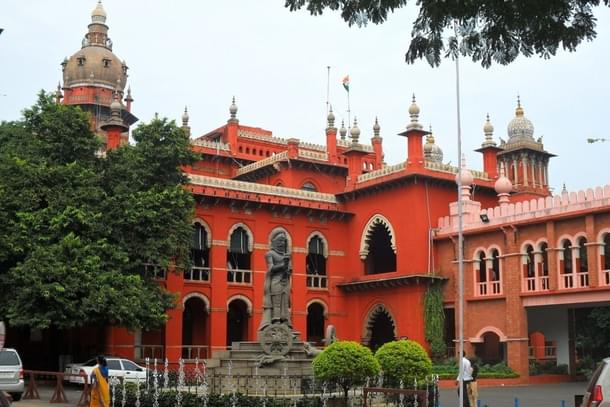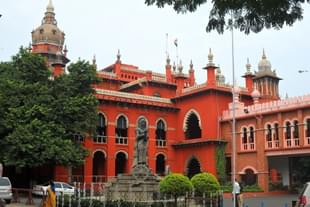News Brief
Madras HC Sparks Controversy: Questions Whether Killing Of Hindu Religious Leaders Constitutes 'Terrorist Act'
Nayan Dwivedi
Dec 14, 2023, 04:58 PM | Updated 04:58 PM IST
Save & read from anywhere!
Bookmark stories for easy access on any device or the Swarajya app.


In a recent development, the Madras High Court has cast doubt on whether a conspiracy to harm leaders affiliated with the Rashtriya Swayamsevak Sangh (RSS), Bharatiya Janata Party (BJP), or the killing of Hindu religious leaders should be classified as a 'terrorist act'.
The court's observations came during the consideration of a bail plea for Asif Musthaheen, who was arrested on 26 July 2022, on charges of conspiring to harm members of Hindu organisations.
As reported by The Hindu, justices S S Sundar and Sunder Mohan, while granting bail to Musthaheen, raised questions about the application of Section 15 of the Unlawful Activities (Prevention) Act, 1967.
This section invokes the term 'terrorist act' and applies if an action is committed with the intent to threaten the unity, integrity, security, economic security, or sovereignty of the country.
The judges pointed out that the respondent, in this case, had not sufficiently explained how a conspiracy to attack religious leaders could be deemed a terrorist act under Section 15 of UAPA.
They emphasised that to qualify as a terrorist act, the action must be committed with the intent to strike terror among the people.
Addressing the evidence presented, the bench stated that certain Arabic text messages exchanged by the bail petitioner did not indicate any association with the proscribed terrorist organisation, the Islamic State (ISIS).
They also emphasised that even if the second accused was a member of ISIS, the exchanged messages only suggested a desire to be close rather than an explicit association with terrorist activities.
Nayan Dwivedi is Staff Writer at Swarajya.





